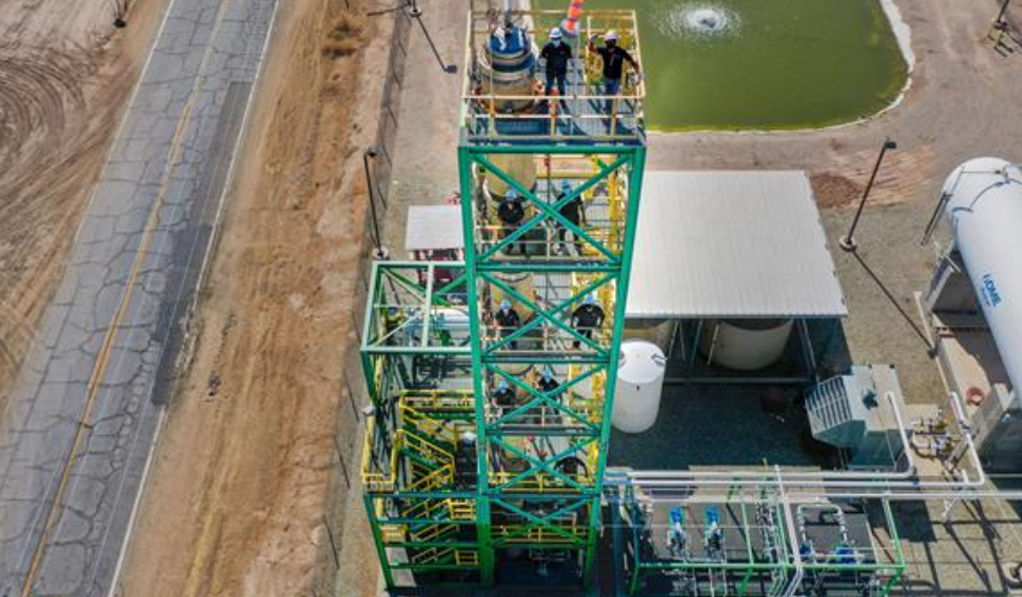Oberon Fuels, producer of clean-burning dimethyl ether (DME) transportation fuel, has begun production of the first-ever renewable DME (rDME) in the United States, and the only current commercial production of this molecule in the world. Because rDME’s properties allow it to cost-effectively store and transport renewable hydrogen, this milestone unlocks Oberon’s ability to reduce emissions from transportation today, while accelerating the development of the hydrogen economy and a net-zero carbon future.
As part of a $6 million project funded in part by a grant from the California Energy Commission, Oberon is converting waste methanol into rDME at its upgraded facility in Brawley, Calif. It is the first time this feedstock has been used to make rDME at commercial scale. In addition to waste methanol, other potential feedstocks include: biogas from dairy waste, food wastes, agricultural waste, as well as excess electricity and CO2, resulting in ultra-low carbon to carbon-negative DME.
“This is a critical step on the path to decarbonizing the transportation sector,” said Elliot Hicks, Chief Operating and Technology Officer and an Oberon Fuels co-founder. “Our innovative approach uses waste resources to create a flexible molecule that can reduce emissions from fossil fuels, as well as create entirely new, super-clean fuels.”
Renewable DME has multiple pathways to reducing the carbon footprint of the transportation sector: as a diesel replacement, as a blend with propane and as an energy-dense, cost-effective way to move renewable hydrogen. rDME can help overcome some of the biggest barriers inhibiting the widespread use of hydrogen for transportation fuel, including: access to renewable feedstocks; modular, scalable production; and energy-dense, cost-effective storage and transport. Once delivered, rDME can be converted to renewable hydrogen at the point of use.
DME is a hydrogen-rich molecule that handles like propane, or liquefied petroleum gas (LPG). It can be produced at or near renewable feedstock sources using Oberon’s modular production technology. This novel approach to renewable hydrogen production promises similarities to the influence that distributed, rooftop solar has had on decentralizing industrial power generation.
Moreover, because rDME is compatible with LPG, it requires minimal modifications to the existing global LPG distribution network and workforce, which have been safely handling and transporting similar molecules for more than a century.




Recent Posts
Port of Brisbane Unveils Vision 2060 to Drive Smarter, Cleaner, and More Connected Future
Wärtsilä to Deliver Hybrid Propulsion Systems for Vertom Group’s New Low-Emission Vessels
Latvian port receives electric Konecranes Gottwald Mobile Harbor Crane
Sustainable Ocean Economy Vital for Human Development, Says UNDP at UN Ocean Conference
Green Hydrogen Costs in India Could Drop by 40%, Says IEEFA-JMK Report
Cavotec Secures €1.55 Million Shore Power Contract for Port of Antwerp-Bruges
APM Terminals and SANY Marine sign landmark agreement to accelerate decarbonisation
The Port of Gothenburg takes big step towards shore power connection for container and car/RoRo vessels